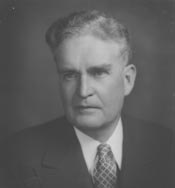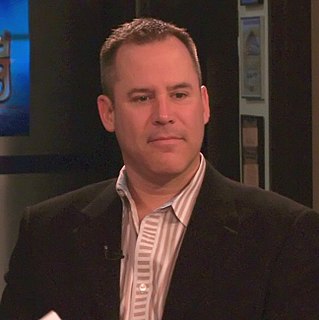A Quote by Bruce Barton
Before you give up hope, turn back and read the attacks that were made on Lincoln.
Related Quotes
We read to learn and to grow, to laugh, to be motivated, and to understand things we've never been exposed to. We read for strength to help us when we feel broken, discouraged or afraid. We read to find hope. We read because we're not just made up of skin and bones, and a deep need for chocolate, but we're also made up of words, words which describe our thoughts and what's hidden in our hearts.
The terrorist attacks were a tragedy for the people who died or were injured, and for their families and friends. For the rest of us, they were a wake-up call as to what type of lunatics we are dealing with. And sleepwalking our way back into ill-sorted, dewy-eyed people personal politics is the last thing we need to set us up for the fight ahead. Come on you liberals, don't give me the morbid pleasure of saying, 'I told you so' again.
The spiritual kinship between Lincoln and Whitman was founded upon their Americanism, their essential Westernism. Whitman had grown up without much formal education; Lincoln had scarcely any education. One had become the notable poet of the day; one the orator of the Gettsyburg Address. It was inevitable that Whitman as a poet should turn with a feeling of kinship to Lincoln, and even without any association or contact feel that Lincoln was his.
No one reads to hear someone complain about the weather or how poorly their children are behaving. You have to give the readers a reason to turn the page. As a writer you have to invite someone to turn the page. And that is a skill you have to refine. That is why you have to read. You have to read to learn what it is that makes people turn the page.
I am asked often about Abraham Lincoln's mistakes and faults; he certainly made some mistakes. I have chapter in President Lincoln about the Powhatan affair that was a royal screw-up in the early days - right alongside the Sumter affair. Lincoln signed letters he should not signed, and the ship was sent to two places at one under two captains etc. Fortunately, no great harm. Lincoln took the blame and did not do anything like that again.
There's been more written about Lincoln than movies made about him or television portraying him. He's kind of a stranger to our industry, to this medium. You have to go back to the 1930s to find a movie that's just about Abraham Lincoln. I just found that my fascination with Lincoln, which started as a child, got to the point where after reading so much about him I thought there was a chance to tell a segment of his life to to moviegoers.
...we are not without hope of salvation, nor is it at all the right time for us to despair. All our life is a season of repentance, for God 'desires not the death of the sinner', as it is written, 'but that the wicked turn from his way and live' (cf. Ez. 33:11 LXX). For, if there were no hope of turning back, why would death not have followed immediately on disobedience, and why would we not be deprived of life as soon as we sin? For where there is hope of turning back, there is no room for despair.
Killing Lincoln is a must-read historical thriller. Bill O'Reilly recounts the dramatic events of the spring of 1865 with such exhilarating immediacy that you will feel like you are walking the streets of Washington DC on the night that John Wilkes Booth shot Abraham Lincoln. This is a hugely entertaining, heart-stopping read.
You need to give the reader a reason to turn the page. In a diary, you are just yourself. You aren't trying to entertain. You aren't trying to get anyone to turn the page. I have over one hundred and fifty six volumes of my diary and I guarantee you that if you read them, you'd stop and never come back.
Abraham Lincoln did have intellectual instincts, a tremendous curiosity on a broad range of subjects, and a near-photographic memory for what he read. He was, at the end of the day, a politician: politics were his heaven, said William Herndon. But Lincoln did take comfort in ideas and books, more so than almost any other president, and he went to books and ideas in moments of perplexity to sort things out. Philosopher, no, but thoughtful and "surprisingly well-read" for his day.


































